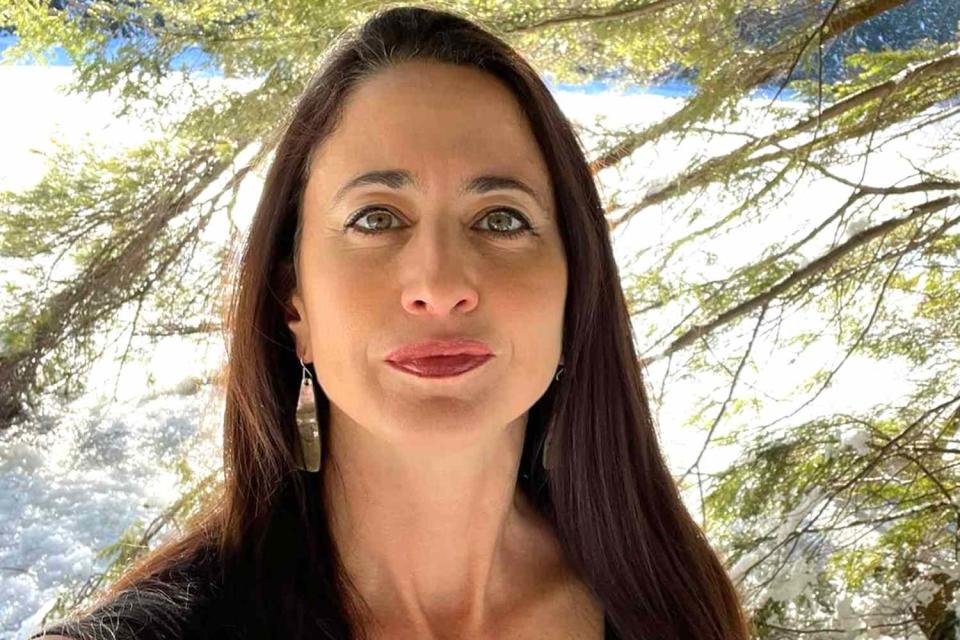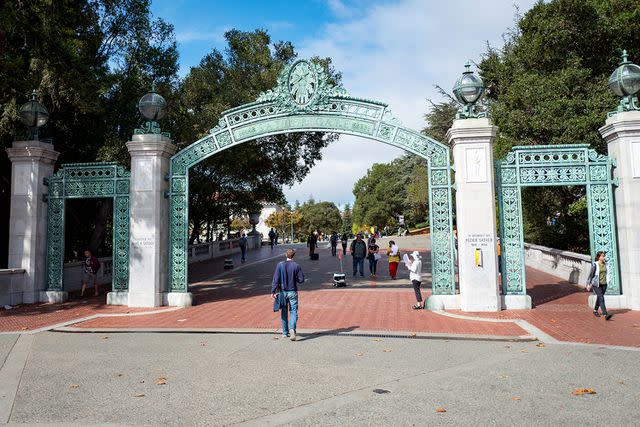UC Berkeley Professor Apologizes for Falsely Identifying as Native American: 'I Am a White Person'
"In uncritically living an identity based on family stories without seeking out a documented connection to these communities, I caused harm," wrote Elizabeth Hoover

A California professor has issued an apology for falsely identifying as Native American for her "whole life, based on incomplete information," saying "I am a white person."
UC Berkeley associate professor Elizabeth Hoover apologized last week for "incorrectly" identifying as a woman of Mohawk and Mi'kmaq descent "without confirming it with communities of origin."
"In uncritically living an identity based on family stories without seeking out a documented connection to these communities, I caused harm," she wrote.
In her apology, Hoover acknowledged that she "betrayed and hurt my students, collaborators, and friends" as a result of identifying with a community she did not belong to. "For this hurt I have caused, I am deeply sorry," she added.
Related:UC Berkeley Is Returning Thousands of Ancestral Remains to Indigenous People: 'Restorative Justice'
In a statement obtained by PEOPLE, UC Berkeley spokesperson Janet Gilmore says the university would not comment on potential disciplinary action due to protected privacy rights.
"We are aware of and support ongoing efforts to achieve restorative justice in a way that acknowledges and addresses the extent to which this matter has caused harm and upset among members of our community," Gilmore adds.

Hoover said she came to believe she was Native American "based on family stories" and subsequently "did not question who I was told I was, or how I identified."
As a result, Hoover said she received access to various "spaces and resources" that would not have been otherwise available to her, including "resources that were intended for students of color."
Never miss a story — sign up for PEOPLE's free daily newsletter to stay up-to-date on the best of what PEOPLE has to offer, from celebrity news to compelling human interest stories.
Specifically, Hoover said identifying as Native American "guided the types of research and community work I carried out, and the communities I sought to be part of. She acknowledged that she may not have been welcomed in the same way "had I identified as white."
The associate professor of environmental science, policy and management has published multiple books and articles about Native American "food sovereignty and seed rematriation" throughout her career, according to her website.
In 2021, Hoover's name appeared on Jacqueline Keeler's "Alleged Pretendian List," which featured more than 200 names of individuals she believed were falsely claiming Native American heritage, according to the Associated Press.
A letter signed by hundreds of students and scholars from UC Berkeley was released calling for Hoover to admit to her wrongdoings and acknowledge the harm she caused to the Native American community in November 2022, per the news agency.
That October, Hoover released a statement noting that she would no longer identify with either the Mohawk and Mi'kmaq communities after finding no records that proved her indigenous ancestry, according to The Los Angeles Times and CNN.
Related:Pope Francis Visits Canada to Apologize for Abuse Indigenous Children Suffered in Catholic Schools
In the professor's recent statement, Hoover said she brushed off questions about her heritage as "petty jealousy or people just looking to interfere in my life," but now admits that it was "wrong" to let her ego control her response.
Moving forward, Hoover said she's committed to further educating herself about the harm her actions have caused and promised to give the proceeds from her talks and book sales "into Native farm, food sovereignty, and educational programs."
The professor also said she plans to "gear future research towards supporting people and communities with whom I have an authentic relationship."
"I don't have all the answers, or even very many answers right now," she concluded, adding, "I'm open to exploring the best ways forward."
Related:The University of Oregon Will Cover Tuition and Fees for Indigenous Students Living in State
The apology has been met with backlash and calls for her firing.
Adrienne Keene, an assistant professor of American studies and ethnic studies at Brown University and member of the Cherokee Nation, said she has been "devastated, enraged, and exhausted" for the last year.
"I have spent countless hours supporting her current and former students, trying to process my own emotions, and having to continue on at an institution that gave her a PhD, her first job, and tenure," Keene wrote on Twitter the day after Hoover's apology was released.
Dr. Desi Small Rodriguez, assistant professor in UCLA's Sociology Department and American Indian Studies Program and a Northern Cheyenne tribe member, tweeted that she believes Hoover "must be fired" for her actions.
"Professor Hoover's entire career was built on lies. She knew better. She got caught," Rodriguez wrote on Twitter.
For more People news, make sure to sign up for our newsletter!
Read the original article on People.

